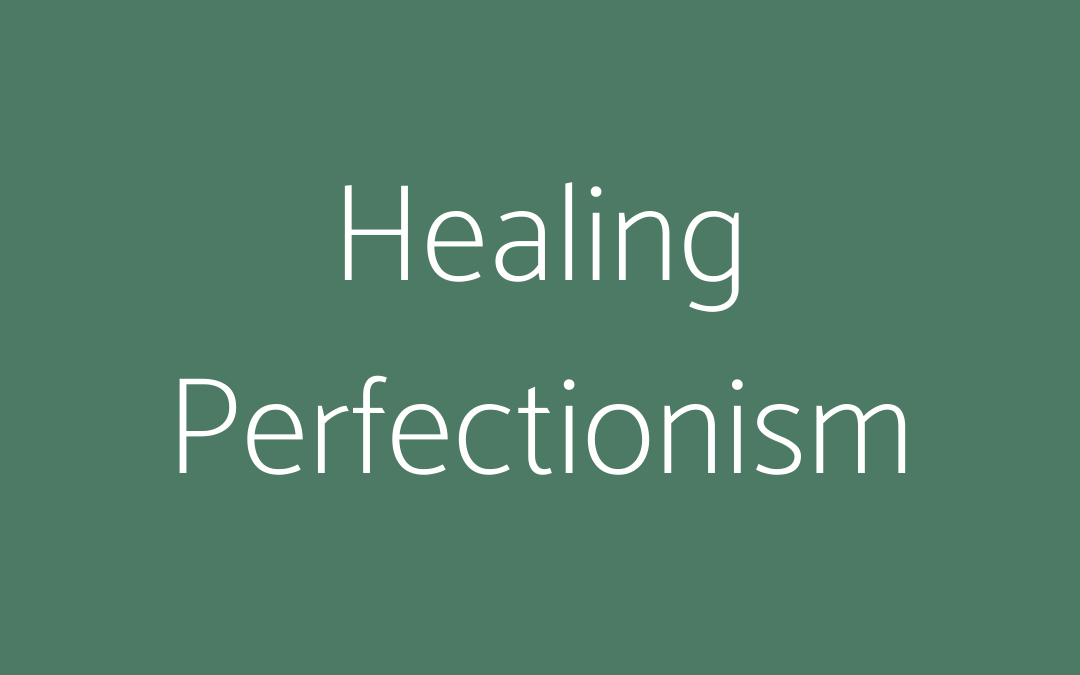Perfectionism can create a lot of anxiety. It can also keep you from starting tasks/projects or finishing them, out of fear that they won’t be perfect.
I’m going to let you in on a little secret. Almost nothing is perfect.
Humans aren’t perfect. Projects aren’t perfect. We do the best we can, and we make mistakes. Contrary to popular belief, mistakes aren’t to be avoided at all costs. We learn from mistakes.
What if You Could Allow “Good Enough”?
I invite you to consider the possibility of allowing things to be “good enough.”
What would happen if you could?
Would you be able to start something with less anxiety?
Would you be able to do more, even if you aren’t able to do all of it perfectly or all at once?
Might you enjoy the process of doing/creating more?
My guess is that the answer to most of these questions is “yes.”
Ok, so that’s great. But how do you actually do that?
Awareness of Perfectionism
The first step is awareness of perfectionism and being able to call it what it is.
When you notice yourself feeling:
-afraid to start something
-stuck/unable to move ahead
-afraid to return to something after a time away
-afraid to finish something
Ask yourself why. Are you expecting perfection from yourself? Are you afraid it won’t be perfect? Do you believe if it isn’t perfect, it isn’t worth doing at all?
If the answer to any of these questions is yes, you can gently label what’s happening as perfectionism. No need to judge yourself for it. You’re just becoming aware.
Practice Allowing “Good Enough”
Once you are able to notice perfectionism and call it what it is, you can start to practice allowing “good enough.”
Examples of this are:
Choosing to start a task by saying, “This might not be perfect, but I’m going to do a good job and let that be enough.”
Or, “I might not be able to finish this whole thing, but I am going to start and see how far I’m able to get.”
Coming to the end of a task and saying, “There might be more I could do to make this better, but I’ve worked on this enough, it’s good, and I’m going to let it be.”
Notice what happens when you practice this. Do feelings come up for you? Body sensations? Again, no judgment here, just an opportunity to notice, and perhaps to give yourself some care.
People can feel quite anxious when they do this for the first time. Which makes sense. We usually develop perfectionism for a good reason.
Often, as children, we develop an unconscious belief that we will only be loved or cared for if we are “perfect.” Unfortunately, the way many of us were parented plays a role in this.
Most parents learn to discipline their children when they have big feelings. Many also show conditional love based on the child’s behavior and performance. No wonder we feel afraid to make mistakes!
So, back to noticing what comes up for you when you practice allowing “good enough.” Can you do something to help soothe the feelings that come up? Can you gently challenge that belief that you will only be loveable if you are perfect? Because I know for damn sure that’s not true.
Learning from Mistakes
From here it’s a practice. We notice. We call perfection what it is when it’s there. We practice allowing “good enough.” We soothe ourselves and gently challenge unhelpful beliefs.
We practice doing things, even if they aren’t perfect. We allow ourselves to make mistakes. That might include allowing perfectionism to take over sometimes. That’s okay! We learn from our mistakes. Making mistakes actually allows us to get better.
And as we practice this, we find more peace and ease.
If you would like support with healing perfectionism, I would love to help. Call me at 805-664-1177 for a free phone consultation.

